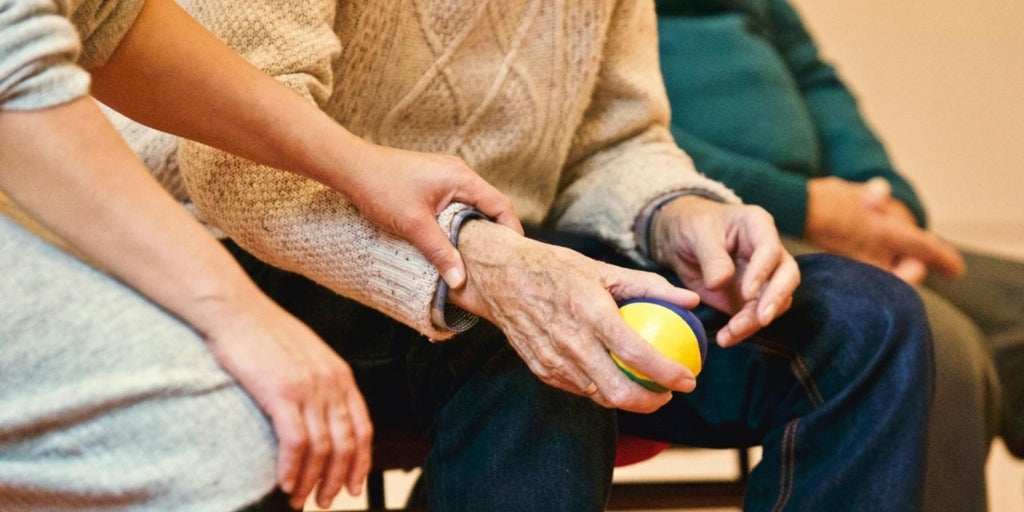Living without pain: the perspective that is transforming rheumatic diseases

The term 'rheumatic diseases' encompasses more than 200 different conditions that can affect not only the joints, but also muscles, blood vessels, skin, and vital organs. In many of these diseases, the immune system becomes dysregulated, causing persistent inflammation that, if left unchecked, damages tissues and compromises quality of life. Today, rheumatological medicine aims to intervene before this occurs: identifying warning signs early, halting inflammation at its source, and achieving what a few decades ago seemed an unattainable challenge: early and lasting remission of the disease.
Dr. Álvaro García Martos, a rheumatologist at the University Hospital of Tajo (Aranjuez, Madrid), sums up this change of perspective well: “Today we know that controlling inflammation is the key to changing the natural history of these diseases.”
Research has revealed that sustained inflammation not only damages the joints, but “can also disrupt the balance of the entire body: it increases cardiovascular risk, affects metabolism, and impacts psychological well-being.” Therefore, he adds, “the current therapeutic goal is not limited to pain relief, but rather to addressing the root cause of the problem and preventing the inflammatory process from becoming chronic.”
Early control of inflammation not only treats symptoms but also changes the course of the disease. The sooner action is taken, the greater the likelihood of achieving lasting remission and improving the patient's quality of life.
The first step is to identify the disease and begin treatment as soon as possible.
Less rigidity, more mobility and autonomy in daily life.
Less rigidity, more mobility and autonomy in daily life.
When inflammation is stably controlled, the patient can regain their physical and emotional well-being.
Sources: European League Against Rheumatism (EULAR); American College of Rheumatology (ACR); 'Rheumatoid arthritis', by Smolen JS, Aletaha D and McInnes IB., 'Lancet', 2016; World Health Organization
To illustrate what happens when the immune system remains in a state of constant alert, García Martos uses a simple metaphor: “Just as doing squats with incorrect posture will eventually lead to injury, an immune system that operates in constant alarm mode becomes accustomed to that pattern. The longer it takes to correct this, the harder it will be to regain balance.”
The specialist insists that the impact goes far beyond the physical: “These diseases affect every facet of a person's life. Not being able to move, not being able to do your job, or not being able to enjoy time with your loved ones has a huge emotional impact,” he explains. Controlling inflammation, he adds, restores balance and independence, but also hope.
Early diagnosis changes the storyThe starting point is early diagnosis, which not only prevents structural damage but also opens the door to remission, the ideal state in which the disease ceases to be active. García Martos insists that “the sooner action is taken, the greater the chances of achieving lasting remission.”
However, achieving this remains a challenge. “There are advanced treatments, but not all patients achieve complete absence of inflammation. There are still those who depend on corticosteroids or live with recurrent flare-ups,” he acknowledges. Hence the need for a personalized and multidisciplinary approach, in which collaboration between specialties—and the patient's own involvement—is key.
Early control of inflammation not only treats symptoms but also changes the course of the disease. The sooner action is taken, the greater the likelihood of achieving lasting remission and improving the patient's quality of life.
- Heart Increased cardiovascular risk (atherosclerosis, hypertension)
- Bones: Loss of bone mass and osteoporosis
- Metabolism: Metabolic syndrome, increased cholesterol and glucose
- Emotional state: Depression, anxiety, and chronic fatigue
- Immune system: Increased susceptibility to infections
- Sleep disturbances and poorer physical recovery
Sources: 'Atherosclerotic cardiovascular disease prevention in rheumatoid arthritis, by Semb AG et al. in Nature Reviews Rheumatology (2020); 'Pathhomechanisms of bone loss in rheumatoid arthritis', in Frontiers in Medicine; 'The impact of rheumatoid arthritis on quality-of-life and mental health: a systematic review and meta-analysis'. Rheumatology, 2014; 'Comorbidities in rheumatoid arthritis: the RBSMR'. International Journal of Clinical Rheumatology.
For Elisenda de la Torre, president of the Reu+ association and a psoriatic arthritis patient, the diagnosis was a turning point. “I was diagnosed at 20, and back then living with arthritis meant going from the sofa to the bed. Today, the reality is very different: we have effective treatments and we can lead almost normal lives. But there are still many things that need improvement.”
Among these are practical information and support. “Sometimes they tell you to maintain your weight, but they don’t explain how to do it. There’s a lack of nutritional support, physiotherapy, or psychological care,” she points out. Her experience reflects the need for a holistic approach, in which body and mind work together: “Autoimmune diseases are closely linked to emotional state. A flare-up can be triggered by stress, which is why psychological support should be part of the treatment.”
De la Torre also emphasizes the proactive role of the patient: “Knowing yourself, knowing when to rest, accepting your limitations, and asking for help when you need it. All of that is part of managing the disease.” Even so, she acknowledges that it isn't easy: “There are days when you need help even to go to the bathroom, and it's very difficult to ask for it. It's hard to accept that you need support without feeling like a burden.”
Her message, however, is hopeful. “Early diagnosis has changed our lives. Before, all patients ended up with prostheses; now they don't. And we shouldn't resign ourselves to it: living with pain isn't normal. There are treatments to alleviate it and improve your life. It's not about giving up, but about learning to live with the disease from a different perspective.”
When the body aches and life shrinksAs a patient advocate, De la Torre speaks about the importance of psychological support. Because the emotional impact of rheumatic diseases is profound, and often invisible. Dr. Rosa Molina, a psychiatrist at the San Carlos Clinical Hospital (Madrid), explains it with a powerful image: “The diagnosis doesn't just affect the body; it forces us to re-evaluate our entire understanding, to re-examine the territory of the new body we inhabit.”
According to the specialist, receiving this type of diagnosis “can awaken contradictory emotions: fear, anger, disbelief, even relief. Sometimes, putting a name to what is happening brings meaning, but it also forces one to assume a new identity.” Therefore, she insists that the professional's role “is not only to calm, but also to accompany, validate, and offer spaces where the process can be navigated.”
Physical pain, she explains, is amplified when mixed with anxiety, guilt, or hopelessness. “The body becomes an unpredictable weatherman, warning of storms without warning. Fear of pain arises, the anticipation that it will get worse, and that makes it hurt more.” To break this cycle, Molina recommends building a “psychological emergency kit” that might include conscious breathing, brief writing, mindfulness, or short breaks to reconnect with the present.
She also emphasizes the importance of asking for help: “It’s not a sign of weakness. Sharing how we feel changes our narrative. Stopping saying 'nothing’s wrong' and starting to ask ourselves 'what’s wrong with me' is an act of courage.” The support network, she adds, is essential: “Resilience should be called network resilience . We are stronger when we support each other.”
Towards a more humane medicineAll three agree that controlling inflammation is only part of the challenge. The other major challenge is restoring people's physical and emotional balance. "It's not enough to silence the pain," García Martos points out. "It's about helping the patient get their life back on track."
Early control of inflammation has thus become a guiding principle of modern rheumatological medicine. It not only prevents damage but also opens the possibility of lasting remission and a fuller, more active life. Because living with a rheumatic disease, as Rosa Molina reminds us, “is not just about managing medical symptoms, but about learning to reconnect with yourself, with your limitations, and with your small victories.”
And in that process, Elisenda de la Torre concludes, attitude makes all the difference: “It doesn’t all depend on the treatment. It also depends on you, on getting involved and not giving up on living with dignity, even if it hurts a little more some days.”
EL PAÍS





